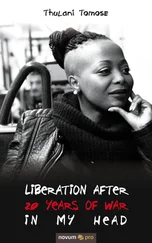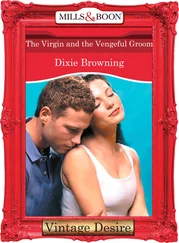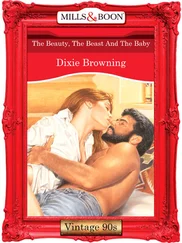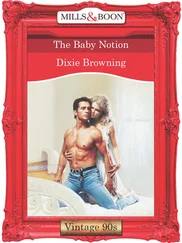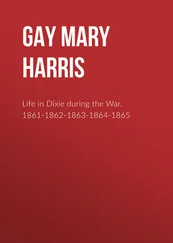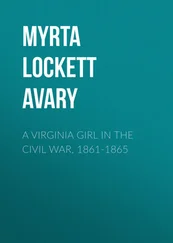Myrta Avary - Dixie After the War
Здесь есть возможность читать онлайн «Myrta Avary - Dixie After the War» — ознакомительный отрывок электронной книги совершенно бесплатно, а после прочтения отрывка купить полную версию. В некоторых случаях можно слушать аудио, скачать через торрент в формате fb2 и присутствует краткое содержание. ISBN: , Жанр: foreign_antique, foreign_prose, Историческая проза, на английском языке. Описание произведения, (предисловие) а так же отзывы посетителей доступны на портале библиотеки ЛибКат.
- Название:Dixie After the War
- Автор:
- Жанр:
- Год:неизвестен
- ISBN:http://www.gutenberg.org/ebooks/41730
- Рейтинг книги:5 / 5. Голосов: 1
-
Избранное:Добавить в избранное
- Отзывы:
-
Ваша оценка:
- 100
- 1
- 2
- 3
- 4
- 5
Dixie After the War: краткое содержание, описание и аннотация
Предлагаем к чтению аннотацию, описание, краткое содержание или предисловие (зависит от того, что написал сам автор книги «Dixie After the War»). Если вы не нашли необходимую информацию о книге — напишите в комментариях, мы постараемся отыскать её.
Dixie After the War — читать онлайн ознакомительный отрывок
Ниже представлен текст книги, разбитый по страницам. Система сохранения места последней прочитанной страницы, позволяет с удобством читать онлайн бесплатно книгу «Dixie After the War», без необходимости каждый раз заново искать на чём Вы остановились. Поставьте закладку, и сможете в любой момент перейти на страницу, на которой закончили чтение.
Интервал:
Закладка:
“Mr. Davis kept up a cheerful countenance the whole time he was here,” his hostess has borne witness, “but I was sure that deep down in his heart he was not cheerful – I felt it. He was brave, self-possessed. Only once did he betray evidence of break-down. When he was leaving, I knew that he had no money in his pockets except Confederate notes – and these would buy next to nothing. We had some gold, and I offered it to him, pressed it upon him. He shook his head. Tears came into his eyes. ‘No, no, my child,’ he said, ‘you and your husband are much younger than I am. You will need it. I will not.’ Mr. Davis did not expect to live long. He was sure he would be killed.”
When General Sherman was accused by Stanton of treachery because he was not hotter on the scent of “Jeff Davis and his $13,000,000 treasure-trains,” he retorted indignantly that those “treasure-trains dwindled down to the contents of a hand-valise” found on Mr. Davis when captured.
Mrs. Sutherlin pointed out to me the President’s sleeping-room, an upper chamber overlooking the lawn with its noble trees, in whose branches mocking-birds lodge. At his first breakfast with her, Mr. Davis told Mrs. Sutherlin how the songs of the mocking-birds refreshed him.
Another thing that cheered him in Danville was the enthusiasm of the school-girls of the Southern Female College; when these young ladies, in their best homespun gowns, went out on dress parade and beheld Mr. Davis riding by in Major Sutherlin’s carriage, they drew themselves up in line, waved handkerchiefs and cheered to their hearts’ content; he gave them his best bow and smile – that dignified, grave bow and smile his people knew so well. I have always been thankful for that bright bit in Mr. Davis’ life during those supremely trying hours – for the songs of the mocking-birds and the cheers of the school-girls.
Some weeks after his departure, General Wright, U. S. A., in formal possession of Danville, pitched his tent opposite the Sutherlin Mansion. The next Mrs. Sutherlin knew, an orderly was bearing in a large pitcher, another a big bowl, and between them General Wright’s compliments and his hopes “that you may find this lemonade refreshing” and “be pleased to accept this white cut sugar, as the drink may not be sweet enough for your taste.” Another day, an orderly appeared with a large, juicy steak; every short while orderlies came making presentation.
The Sutherlins accepted and returned courtesies. “We had as well be polite,” said Major Sutherlin. “There’s no use quarrelling with them because they have whipped us.” When they came to him for official information as to where Confederate Government ice-houses were, he responded: “It is not my business to give you this information. Your commanders can find out for themselves. Meanwhile, General Wright and his staff are welcome to ice out of my own ice-houses.” They found out for themselves with little delay.
On the verandah where the Confederate President and his advisers had lately gathered, Federal officers sat at ease, smoking sociably and conversing with the master of the house. If a meal-hour arrived, Major Sutherlin would say: “Gentlemen, will you join us?” Usually, invitation was accepted. Social recognition was the one thing the Northern soldier could not conquer in the South by main strength and awkwardness; he coveted and appreciated it.
All were listening for tidings of Johnston’s surrender. At last the news came. Around the Sutherlin board one day sat six guests: three Federal officers in fine cloth and gold lace, three Confederate officers in shabby raiment. A noise as of a terrific explosion shook the house. “Throw up the windows!” said the mistress to her servants, an ordinary command when shattering of glass by concussion was an every-day occurrence in artillery-ridden Dixie. Save for this sentence, there was complete silence at the table. The officers laid down their knives and forks and said not one word. They knew that those guns announced the surrender of Johnston’s army. I suppose it was the salute of 200 – the same that had been ordered at every post as glorification of Lee’s surrender.
Some time after this, Mayor Walker came to Major Sutherlin with a telegram announcing that General Meade and his staff would stop in Danville over night. They had been or were going to South Carolina on a mission of relief to whites who were in peril from blacks. At the Mayor’s request, Major Sutherlin met the officers at the train.
“General,” was his cordial greeting to General Meade, a splendid-looking officer at that day, “I am here to claim you and your staff as my guests.” General Meade, accepting, said: “I will have my ambulance bring us up.” “O, no, General! You come in my carriage, if you will do me that honour. It is waiting.”
At breakfast, General Meade said to his hostess: “Madam, Southern hospitality has not been praised too highly. I trust some day to see you North that I may have opportunity to match your courtesy.” Another time: “Madam, I trust that no misfortune will come to you because of the troubled state of our country. But if there should, I may be of service to you. You have only to command me, and I ask it as a favour that you will.”
A Northern friend had warned her: “Mrs. Sutherlin, I fear your property may be confiscated because of the uses to which it has been put in the service of the Confederate Government. You should take advantage of General Wright’s good will and of the good will of other Federal officers towards Major Sutherlin to make your title secure.” Did she ask General Meade now to save her home to her?
“General, hospitality is our privilege and you owe us no debt. But I beg you to extend the kindly feelings you express toward Major Sutherlin and myself to one who lately sat where you now sit, at my right hand. I would ask you to use your influence to secure more gracious hospitality to our President who is in prison.”
Dead silence. One could have heard a pin fall.
Wholesale confiscation of Greensboro was threatened because of Mr. Davis’ stop there. Major Sutherlin strove with tact and diligence to prevent it. He lost no opportunity to cultivate kindly relations with Northerners of influence, and to inaugurate a reign of good-will generally. Receiving a telegram saying that Colonel Buford, a Northern officer, and his party, would pass through Danville, the Major went to his wife and said: “I am going to invite those Yankees here. I want you to get up the finest dinner you can for them.” Feeling was high and sore; she did not smile. The day of their arrival he appeared in trepidation. “I have another telegram,” he said. “To my surprise, there are ladies in the party.”
This was too much for the honest “rebel” soul of her. Men she could avoid seeing except at table; but with ladies for her guests, more olive branches must be exchanged than genuine feeling between late enemies could possibly warrant. But her guests found her a perfect hostess, grave, sincere, hospitable.
There was a young married pair. When her faithful coloured man went up to their rooms to render service, they were afraid of him, were careful he should not enter, seemed to fear that of himself or as the instrument of his former owners he might do them injury.
Such queer, contradictory ideas Yankees had of us and our black people. A Northern girl visiting the niece of Alexander H. Stephens at a plantation where there were many negroes, asked: “Where are the blood-hounds?” “The blood-hounds! We haven’t any.” “How do you manage the negroes without them? I thought all Southerners kept blood-hounds – that only blood-hounds could keep negroes from running away.” “I never saw a blood-hound in my life,” Miss Stephens replied. “I don’t know what one is like. None of our friends keep blood-hounds.”
Читать дальшеИнтервал:
Закладка:
Похожие книги на «Dixie After the War»
Представляем Вашему вниманию похожие книги на «Dixie After the War» списком для выбора. Мы отобрали схожую по названию и смыслу литературу в надежде предоставить читателям больше вариантов отыскать новые, интересные, ещё непрочитанные произведения.
Обсуждение, отзывы о книге «Dixie After the War» и просто собственные мнения читателей. Оставьте ваши комментарии, напишите, что Вы думаете о произведении, его смысле или главных героях. Укажите что конкретно понравилось, а что нет, и почему Вы так считаете.





